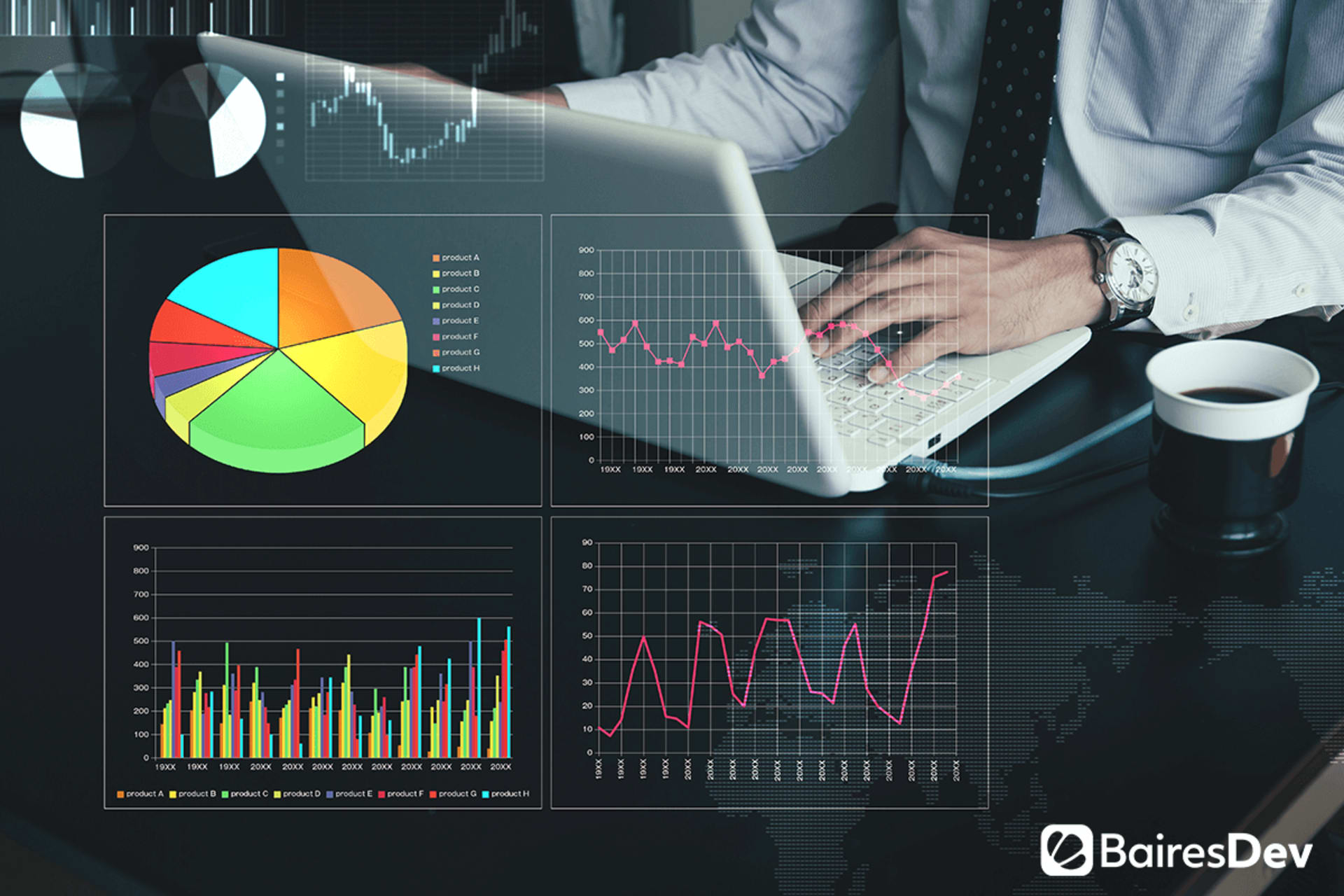Data Visualization (or ‘Dataviz” as the younger minds of today call it) is not a term every business is familiar with. In fact, for many, the first thing that comes to mind would be those 90s-esque, powerpoint-based graphs and charts with unmatched colors. But today, thanks to the power of Big Data and Analytics, Data Visualization has become the hallmark of business meetings.
What is Data Visualization?
The saying “a picture is worth a thousand words” didn’t come out of nowhere. Consumers love visuals. C-level executives love visuals. We all do. It’s just a better, easier, and faster way to understand multiple aspects of a situation. However, in the business world, databases just get bigger and bigger over time. This is where Data Visualization comes in.
Data visualization is the representation of data in a graphical or pictorial format. These shapes turn abstract information into visual patterns, which are easier for our brains to process. Once you see the information in such a state, identifying patterns becomes a simple task—one which would be impossible when looking at massive spreadsheets of information.
No matter the size or industry of your organization, implementing Data Visualization can definitely transform the way you manage decision making. Here are 3 reasons why your company needs Data Visualization today.
1. Act quickly on data
Data visualization transforms even the most complex data into simple-enough elements that make it easy to understand how interactions take place. If you’ve ever been in a meeting where someone popped out a chaotic Excel report with no formatting whatsoever, you know exactly what I mean.
The transparency and simplification that Data Visualization brings to the table allow business leaders to act quickly on data. And since Data Visualization tools can easily process real-time information, the potential to make data-driven decisions with a large impact over the entire enterprise is undeniable. Acting quickly on data allows businesses to adapt to market changes, identify new opportunities, and even stay ahead of their industry competitors.
2. Identify Trends
Today, catching the attention of your target market is more difficult than ever. Getting on top of trends certainly helps a lot with that. Thanks to the wide abundance of databases and software consulting services around the world, it’s not too hard for an organization to get ahold of high-quality data or to develop its own method for generating it. The results of using Data Visualization to drive decisions becomes a whole lot more evident when you put it in the hands of the sales and marketing teams.
Expect to see a more rounded and detailed version of your customers, what resonates with them, and where the market is leaning towards. All of this will give your team a new level of vision over product performance, promotions, prices, demand fluctuation, client services, sales figures forecasts, and many, many more things like these.
3. Interact with data
Data is your friend and there’s nothing wrong with getting close to it. Unlike common spreadsheets, charts, or bar graphs, Data Visualization tools don’t stop at the viewing – they also offer active interaction. You can choose which datasets interact with which datasets, generate custom reports, and even automate analysis protocols.
It’s all about the manipulation of how data is represented. Getting just what you need or want to see on screen is a great way of focusing on what matters the most. That’s a double-edged sword, though. Never lose sight of the big picture!
The Challenges of Working with Big Data
There are three universally-unavoidable things in life: death, taxes, and the exponential growth of data. Sadly, having more data is not always better. It can actually lead to a lack of quality insights, which many refer to as “drowning”. To make the most out of Data Visualization tools, your company needs to take into account how clean is your data, what insights it is generating, and how it fits in your data strategy.
- Cleaning Data: Before thinking about what you want to do with your data, you need to make sure your data is clean enough to be usable. Experian’s last Data Management Report states that less than half of decision-makers trust the data they use and C-level executives believe that at least a third of their data is inaccurate. The reasons behind “dirty” data are varied (incompleteness, inconsistencies, human errors). Clean data is ground zero for effective Data Visualization.
- Insights Quality: Data Visualization tools might be interactive and powerful. However, finding the “right” patterns to collect insights is quite a challenge. Identifying the relevant correlations is what will ultimately lead to new business opportunities. As I said before, data is just as valuable as what we do with it. Having an IT consulting company by your side is a great way of stepping on the right path.
- Data strategy: Once you have clean data and high-quality insights, there comes the time to actually do something with it. But building a comprehensive data strategy is no walk in the park and would require an entire book to explain. From analyzing market trends and choosing data streams to developing your own custom solutions for data processing, creating and sticking to an effective data strategy requires expertise. Otherwise, it’s just a wasted time and resource investment.
Data Is Boring No More
When used properly, Data Visualization can be the best tool in your toolbox to help you achieve your objectives. By providing your team with clear insights and bite-size information, you can transform boring and incomprehensible information into powerful and actionable insights. Today, Data Visualization is not just a nice perk for your average business meeting—it’s a must-have for business development and innovation.










